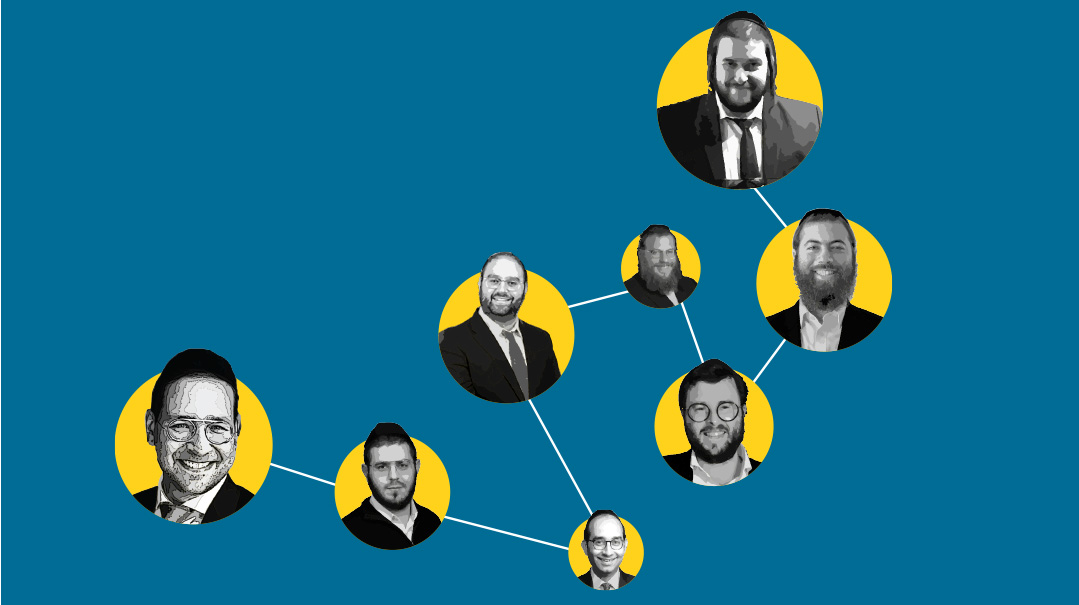“What’s the Biggest Mistake of the Typical Frum Entrepreneur?”
| May 9, 2023“The marketplace is so much bigger than our community. Sometimes frum entrepreneurs forget about the opportunities in the general market”

What’s the biggest mistake the typical frum entrepreneur makes?
Failing to learn from history. There will be good years and bad years. Whether you’re in Amazon, real estate, health care, or any other industry, the same concept applies. Many entrepreneurs got used to extraordinary times, with easy money and low rates. During Covid, there were stimulus checks, PPP, EIDL, and other grants. Scores of business owners had their best years ever. Many got used to a higher standard of living.
The intelligent ones lived below their means and built up reserves. Others spent freely and assumed the music would continue playing forever. As the business cycle begins to turn, it’s more prudent than ever to ensure you can weather any potential storm.
—Yudi Goldfein
Wealth Manager at a Wall Street Firm
They start off too fast without getting sound advice from advisors. It’s always wise to get advice from your accountant, lawyer, financial advisor, and business advisors so you start — and stay — on the right track. Mistakes can be costly to fix. You’re better off making the right decisions from the get-go.
—Shlomo Blasenstein, CPA
The marketplace is so much bigger than our community. Sometimes frum entrepreneurs forget about the opportunities in the general market. It took me three years to break that line, and until this day I have a complex about it.
We need to shift our mindsets. Currently 98 percent of my business is in the general market, and I have never gotten any pushback for who I am or how I look. The bottom line is: All that matters is quality and service, regardless of how you look.
Sometimes, we put ourselves in a box and are afraid to cross that line. If you are an insurance agent, a real estate broker, a painter, or a car leasing agent, remember that there’s so much more potential business outside the box.
—Jacob Guttman, CEO, Nail It
Many frum entrepreneurs — especially women — make the mistake of underestimating their own capabilities and believe they can’t achieve as much as their non-frum counterparts. But on the contrary, being frum gives entrepreneurs a unique advantage. Our backgrounds, values, upbringings, and standards of chinuch give us a strong foundation for success. Don’t sell yourself short — recognize the strengths that being frum brings to your entrepreneurial journey and believe that so much is possible.
—Chany Rosen, President, Cavalry Associates
Many business owners — especially the ones who hire from within the community — don’t maximize their employees’ potential. There are so many successful, talented people sitting in cubicles because they don’t have enough opportunity to share their opinions and ideas.
Don’t just let your employees do their jobs — give them opportunities to grow and help them get to the next level. You never know where the next big idea will come from.
— Meny Hoffman, CEO, Ptex Group
Emotions at the Office
Much of what we do at work boils down to people working with people. Emotional Intelligence (EQ) is the ability to recognize and manage one’s own emotions, as well as other people’s emotions. EQ doesn’t mean bringing more drama into the workplace; it’s recognizing what’s already there and using tools to regulate and diffuse negative or stressful situations.
Nechama Seidenfeld of WurkFit Professional Development shares some basic tips for growing your EQ:
- Self-awareness is the starting point of all growth. Take an EQ assessment (there are many available online) to get a feeling for your areas of strength and where you could use improvement. Journaling helps boost your self-awareness and gives voice to many feelings, preventing an overwhelming pile-up.
- The more mindfully present we are, the more self-aware and aware of others we become. Becoming more mindful starts with grounding ourselves in our current moment. (This is easier said than done!) I suggest a basic mini-meditation that can be used unobtrusively whenever you feel that inevitable rush of tension, frustration, anger, or blame.
S — Stop and pause (just stop whatever you are doing).
T — Take a deep breath (three to five good deep breaths in through your nose and out through your mouth).
O — Observe your breath and bodily sensations (as you breathe, just concentrate on your inhales and exhales, and notice any tension in your body).
P — Present. Try to stay in the here and now.
- Work on your active listening skills. When we’re mindfully present when others are speaking, we’re attuned with what they are feeling. This creates an empathetic atmosphere in the workplace.
- Prioritize spending time talking and sharing together as a team. Structure these meetings properly so they are efficient. Give everyone a chance to speak. Using cue questions such as, “Would you like more or less feedback from me?” opens crucial lines of communication, and signals an environment where feelings matter.
(Originally featured in Mishpacha, Issue 960)
Oops! We could not locate your form.






